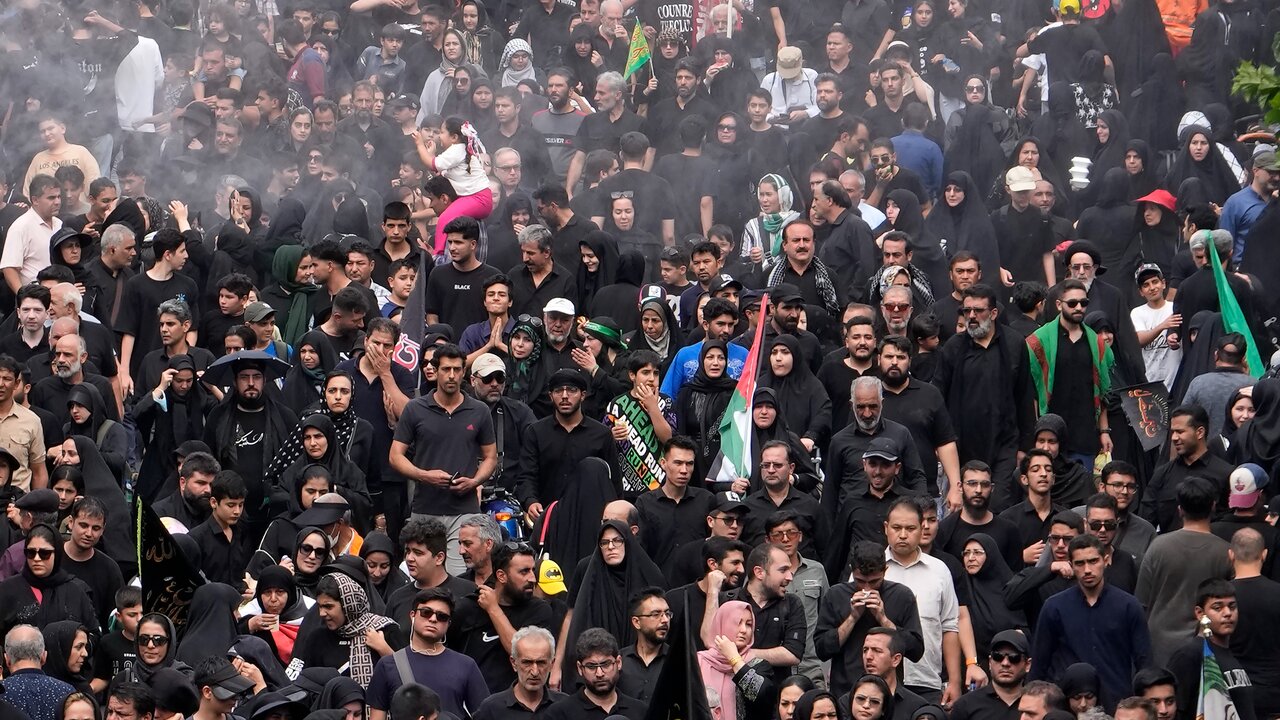The common language of Arbaeen pilgrims is tears

Karbala—An eighty-year-old woman sits beneath a bridge, her face deeply lined with wrinkles, an Arabic beauty mark between her brows, strands of white hair peeking from beneath her scarf, and a pair of round glasses perched on her nose. Amid the sea of people, you’d have to look closely to spot her, sitting with a tray of dates on a small stool, waiting to meet your gaze.
When our eyes meet, she offers me a handful of dates. I take one, thank her for her kindness, and merge back into the crowd.
All of us—the elderly woman handing out dates, the group waving the Australian flag as they walk, the young volunteers at the Thai mawkib serving their traditional drinks—seem like an unlikely gathering of people who, under any other circumstances, would never come together. Yet here we are, on this scorching road between Najaf and Karbala, an 80-kilometer stretch, united by a shared feeling that transcends language. Their smiles say it all, without a single word.
What brings me and millions of others to this road in the peak of summer is not just a religious event—it is a human triumph. In this moment, in this place, over 20 million people have gathered, though the world’s media giants may never acknowledge it. We are here to answer a call for freedom that has echoed through history for 1,400 years.
A free man once chose not to submit to oppression, and he stood by that choice until his last breath. His family and companions—the finest of souls—joined him in defiance, sacrificing their lives. The women and children who stood with them were taken captive.
And now, this massive crowd marches every year to declare that truth endures. As our master Hussain (AS) said, we may face the harshest deaths, our access to food and water may be cut off by the most brutal regimes and unjust laws—but "we will never accept humiliation."
The heat is unbearable, forcing us to pause our journey at midday. But as the sun softens, people resume their path in waves.
A middle-aged woman from Bahrain walks beside me, her three children in tow. She explains that her husband couldn’t join due to work commitments. Her youngest is barely a year old. I ask if this is the hardest experience of her life. In response, she offers a smile—a smile that holds a thousand meanings...
Later, as I sit in prayer, an Iraqi woman beside me asks if I’m Iranian. When I nod, she cups my face, kisses my eyes, and speaks in Arabic—words I barely understand—about Israel, Iranian missiles, and the leadership of Ayatollah Khamenei. What can I do but smile? It’s our common language.
Standing before the shrine of Hussain (AS), exhausted from three days of walking, every muscle aching, my eyes still brim with tears of joy. I see the same emotion on every face around me. We, who have left behind our routines and endured hardships, are here for one affirmation: to raise our hands and say, "Yes, we have heard that cry for freedom echoing through time—and we will never bow to oppression."
Leave a Comment